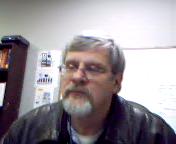This cane is a commissioned piece for a man who is an accomplished hunter. His daughter and sons wanted a piece that tied in geographically to Colorado and Minnesota Minnesota Colorado and Minnesota Minnesota
Annual Christmas Carving Class
-
Each year about this time the Utah Valley Wood Carving Club invites me to
teach a 2-day Christmas carving class. Once again I had a good time with
my car...














